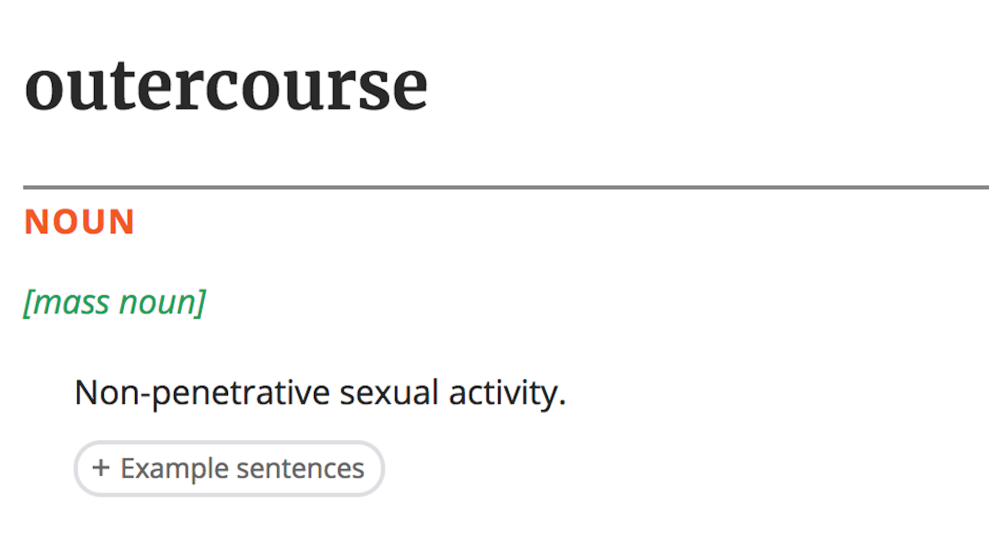
Screenshot via Oxforddictionaries.com
A lawyer for Brock Turner argued this week that his client shouldn’t have been convicted of intending to commit rape. His reasoning is that Turner only wanted “outercourse” with the woman he sexually assaulted.
Turner, of course, is the former Stanford University student who was found thrusting on top of an unconscious 22-year-old woman near a dumpster by a frat house in January 2015. The following year, a jury convicted him on three charges: intent to commit rape of an intoxicated or unconscious person, penetration of an intoxicated person, and penetration of an unconscious person.

The case drew public attention in June 2016, when a powerful letter written by the woman Turner assaulted, Emily Doe, went viral. That month, Santa Clara County Judge Aaron Persky sentenced Turner to just six months in county jail, along with probation and sex-offender registry, prompting widespread outrage. (Turner served three months total; in June of this year, Santa Clara County voters removed Perksy from the bench in an extraordinary recall election.)
In front of a three-justice appeals panel in San Jose on Tuesday, Turner’s lawyer, Eric Multhaup, explained that “outercourse” is sexual contact while fully clothed—”a version of safe sex,” he told the justices. Since Turner chose to have “outercourse,” Multhaup reasoned, he must not have intended to commit rape.
The lawyer laid out more of this argument in an appeal filing in May, which referred to the Oxford Dictionaries definition of outercourse. “The ‘aggressive thrusting’ or ‘humping’ while fully clothed is viewed in modern times as an alternative to or substitute for sexual intercourse, not a precursor to it,” he wrote. “As a matter of common sense, the sexual activity that was observed here is mutually exclusive to actual intercourse. [Turner] clearly had elected to engage in the activity of thrusting with his pants on.”
But the justices this week weren’t buying it. According to the Mercury News, Justice Franklin D. Elia listened, “poker-faced,” before telling Multhaup that proving “intent to commit rape” did not require that defendants had exposed themselves. “I absolutely don’t understand what you are talking about.”
















